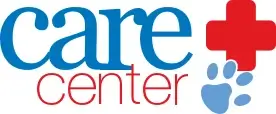 Specialty Appointments
Specialty Appointments
Specialist Appointment Hours
Monday – Friday • 9 am – 6 pm
Cincinnati: 513.530.0911 Dayton 937.428.0911
Appointment Scheduling
Your family veterinarian can refer you to Care Center for consultations and appointments. Please bring any radiographs, blood work, laboratory results, and referral information your family veterinarian has provided. These records help us to better understand your pet’s situation, and sometimes prevent re-running a test.
Payment Options
Full payment is due at the time of service. For hospitalized patients, a deposit will be taken when admitted with the balance due at the time of discharge. We accept all major credit cards, cash, and promotional financing options for qualified individuals including CareCredit and Scratchpay. *Subject to credit approval. See our Client Services Representative for more details.
Cincinnati
Contact UsDayton
Contact Us
Resources
 Frequently Asked Questions
Frequently Asked Questions
According to the CDC, we do not have evidence that companion animals, including pets, can spread COVID-19 to people or that they might be a source of infection in the United States.
Visitation of patients is permitted. You will be placed in an exam room to wait for updates from our nursing staff. Our team can also send you photos of your pet upon request when you are unable to visit the hospital while your pet is in our care.
According to the CDC, at this time, there is no evidence that companion animals, including pets, can become sick with or spread COVID-19.
If you believe your pet is experiencing an emergency, please call before you arrive to our hospital, so we can provide additional instructions. We may be able to help you determine if emergency care is necessary or if your pet can wait to be seen by your primary care veterinarian.
- According to the CDC, if you are sick with COVID-19 (either suspected or confirmed), you should restrict contact with pets and other animals, just like you would around other people. Although there have been no reports of pets becoming sick with COVID-19 in the United States, it is still recommended that people sick with COVID-19 limit contact with animals until more information is known about the virus. This can help ensure both you and your animals stay healthy.
- When possible, have another member of your household care for your animals while you are sick.
- Avoid contact with your pet including, petting, snuggling, being kissed or licked, and sharing food.
- If you must care for your pet or be around animals while you are sick, wash your hands before and after you interact with them.
We accept cash, American Express, MasterCard, Visa, Discover, CareCredit, and ScratchPay. We’ve made it safe and easy for you to pay your bill online via PayPal.
- We have increased the frequency of cleaning and disinfecting of exam rooms and all high touch surfaces throughout our facility with a healthcare grade disinfectant.
- We’ve urged all employees to be vigilant about frequent hand washing and covering coughs and sneezes.
- Employees who feel ill are instructed to stay home and consult their healthcare providers.
- New and additional Personal Protective Equipment (PPE) policies allow us to provide adequate protection to associates while also responsibly preserving PPE for critical services.
- We provide our employees with mental health and wellbeing information and resources.
When you arrive to our hospital, please enter through the main entrance and see a member of our Client Services Team. For curbside payment, we offer online payment through PayPal.
Always consider the following a possible pet emergency and seek immediate care:
Symptoms:
- Any difficulties breathing; short or shallow breaths; increased effort; gagging; choking
- Weakness; inability to walk; sudden collapse
- First-time seizure, seizures lasting more than 3 minutes, or multiple seizures in one day
- Non-productive retching/vomiting; swollen or distended abdomen
- Allergic reactions including swelling, rashes, or itching
- Excessive or persistent bleeding
- Inability to urinate; straining to urinate
- Diabetic animals refusing food
- Pregnant animals in active labor for more than one hour without delivering, or going more than 3-4 hours between deliveries
- Bumping into things; becoming disoriented
- Signs of pain such as whining, shaking, hiding, or dull behavior
- Vomiting blood/passing blood in stools/urine
- Changes in behavior, appetite, or elimination
Trauma:
- Bite wounds
- Broken bones
- Burns
- Cuts, lacerations
- Electrical shock
- Eye injuries
- Fall from heights
- Heatstroke, frostbite
- Hit by car; car accident
- Penetrating foreign objects
Ingestion:
- Chocolate
- Mushrooms
- Onions
- Household plants
- Antifreeze
- Insecticides
- Rat poison (especially those containing bromethalin)
- Household cleansers
- Pool chemicals
- Human medication
- Bones
- Pennies
- Foreign objects
- Excessive amounts of food or garbage


